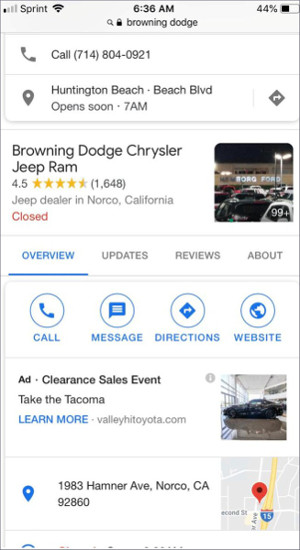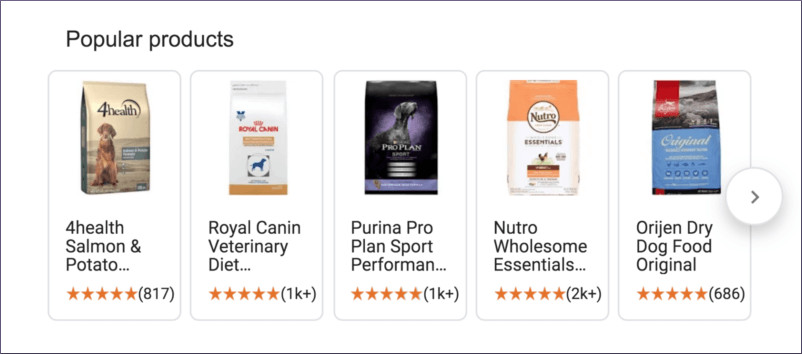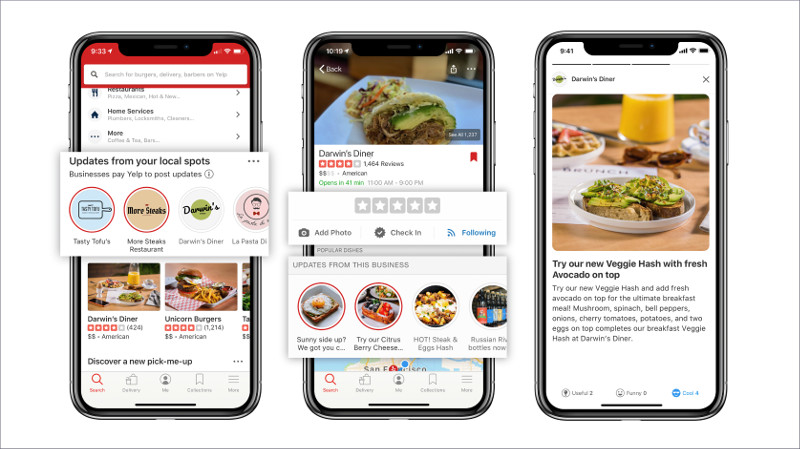It’s Google algorithm update time again. That’s not the biggest story this month, however, as both Google and Yelp have pushed out much more important updates. Google has made big changes to its SERPs, both in the organic and paid space. While the former is a mixed bag, the latter will likely be making some businesses very unhappy. Retailers and restaurants in particular should pay close attention to these updates.
Google releases a broad core algorithm update
Google releases several core algorithm updates a year. These updates, unlike named updates such as “Medic” and “Florida 2”, are meant to be general improvements to the Google algorithms rather than specifically targeted improvements to provide hotfixes to known issues.
Released on September 24th, the latest update is not targeting any specific types of websites or industries, but widely notable effects are still to be expected. The most relevant change can include drops or gains in search rankings. Webpages that do see a drop in their rankings aren’t being penalized, but rather reassessed to better fit what users are expecting to find with their queries. Standard SEO best practices are still to performed. If you find your pages have dropped in ranking and you have not done an SEO audit of your website in recent months, it may be a good time to rectify that and fix what is most likely a routine issue.
In-listing ad spotted on Google My Business
It’s a wonderful time to be in the Google Ads business, as Google has just greatly diminished the value of a business’s own Knowledge Panel. Users will still be getting all the information they need out of these panels, but the gripe businesses owners will have with them is Google’s new test of ad space. Right in a business’s own Knowledge Panel, it has been observed that Google has used that space to place competitor ads.

Source: Ben Fisher
Businesses will not be asked to—nor can they pay to—have the ad removed. There’s a sense that the GMB profile is “owned” by the business and they should have full control over its contents. However, that’s not correct: it’s Google’s property, just as Facebook owns and controls local Facebook Pages. Google is a business and profits are the goal, so it was inevitable to see ads in such valuable real estate. It won’t be long until brands have to buy the ad space in their own Knowledge Panel.
Google will no longer display first-party reviews in SERPs
In a very big change by Google, review-rich results that feature self-serving reviews are being completely phased out. Self-serving reviews are reviews about a brand placed on the brand’s own website. These are most prevalent as they are often the stars that appear underneath a URL in SERPs. These stars have been of very high value to some pages as they have been known to increase CTRs by over 30%. These were incredibly vital in garnering clicks for many websites but now they are being axed altogether.

The reason for this is likely abuse of the system. As these first-party reviews could be spoofed and not indicative of what they are reviewing, Google has lost trust in websites managing their own review schema markups. Despite there being clear instructions of on-page reviews including verified sources and the ability for users to leave additional reviews, their accuracy has come into question and are failing to provide a user experience up to Google’s standards. Google Search also won’t display review snippets if you are using a third-party widget to display reviews on your website. Embedding a third-party widget is seen as controlling the process of linking reviews.
Google’s preference to be the main source for review information likely comes into play here as well. They have made several updates this year to make their Google reviews more important for businesses and want to discourage anything that goes against that plan. This does strike a blow for some industries such as home appliances, which mostly consisted of direct reviews. Google has control of their SERPs, however, and those that have abused the system have made a sub-optimal experience for Google’s users.
Google pushes its new organic product carousel
If you are selling retail products online, you must take advantage of this new Google feature. Google has rolled out a new SERP feature in the US, with plans for it to come out globally very soon. This new—and completely free—SERP feature allows retailers to have their product feed appear organically in a number of different SERPs. This includes both branded searches and any searches where the product may be relevant to the user’s query. Your products could land on various new touchpoints and be showcased to users without any additional effort or paid advertising on your part.
Three new sections will be added organically to some Google search queries:
- Popular Products
- Best Products
- Similar Products (to appear even when someone makes a brand-name search)

Source: Search Engine Land
For example, if a user was to search for “organic dog food” a product carousel can appear at the top of the SERPs, showing various popular brands along with reviews. Clicking on these carousels takes you to the product Knowledge Panels, before linking to a web page. That means anyone who sells the product can be included in the carousel and potentially put into a price-comparison grid on the product Knowledge Panel, all before anyone gets to a page where they can convert on your site. This means that any website that is not providing a product feed to Google will not be included in these grids and may be knocked out of the running as a potential place to buy these products.
In order to be included in these organic product carousels, there are three things that a business must do:
- Make sure your product markup is validated
- Submit your product feed to Google via Merchant Center
- Create an additional feed via Manufacturer Center
It’s best to meet your users at every possible touchpoint—and this is certainly one that shouldn’t be ignored. Especially while this feature appears organically rather than as an advertisement, retailers should take advantage of this free promotional space.
Yelp pushes its new connect feature
Yelp has built its own social publishing tool called Yelp Connect. Much like Google My Business’s Google Posts, Yelp Connect allows restaurants to promote events, specials, menu updates, and other restaurant information directly on their Yelp page. Anyone who visits these pages will see these posts—not just those who follow the restaurant.

Source: Yelp
One advantage Yelp Connect has over Google Posts is that it allows these updates to be scheduled ahead of time. Yelp Connect will also be including these updates from the restaurant owners in what Yelp is calling “a personalized weekly email from restaurants we know users are interested in.” Email recipients will be determined from signals such as prior use of the Yelp Waitlist, Yelp Reservations, or those who have bookmarked a restaurant.
There is one catch for Yelp Connect, however. While Google Posts are totally free, Yelp Connect is currently priced at $199 USD monthly. Yelp is discounting it for early adopters ($99 per month) for a limited time.
Need help managing and optimizing your local online presence? Contact DAC today.




